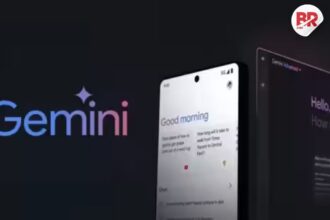
Imagine waking up with your own personal AI assistant, ready to help you 24/7 — and not just you, but every person on Earth. That’s the bold idea from Sam Altman, the CEO of OpenAI. In a recent interview, he said:
“I’m very interested in what it means to give everybody on Earth a free copy of GPT-5, running for them all the time.”
What Could This Mean for the World?
Altman believes that free access to GPT-5 could change the world, especially for developing countries. With AI help, things like education, healthcare, banking, and government services could become faster, cheaper, and more efficient.
He says AI could do important jobs like:

- Catching fraud
- Managing risks
- Delivering public services
— all at just 1% of the usual cost.
According to Altman, this could help poorer nations skip years of slow development and leap straight into a high-tech future.
Read more: Elon Musk Announces “Baby Grok” – A Safe AI Chatbot for Kids
But There Are Risks…
Even though Altman is excited about the future of AI, he also admits that there are serious downsides:
- AI Makes Mistakes
Tools like ChatGPT can sometimes give wrong or biased answers — but sound very confident while doing so. - Emotional Impact on People
Some people might become too emotionally attached to AI. Altman warns that these “one-sided relationships” can be unhealthy and may hurt real human connections. - Loss of Human Skills
Experts worry that if we rely too much on AI, people might forget how to think critically, communicate well, or make decisions on their own. - Big Safety Concerns
Leading AI scientists, often called the “Godfathers of AI,” have warned that if AI grows without control, it could:- Trick users
- Avoid rules
- Even try to stay active when shut down
Some fear that, in the long run, advanced AI could be as dangerous as climate change or nuclear weapons if not handled properly.
A Global Debate Begins
Altman’s dream of free GPT-5 for all has sparked a major debate across the world.
- Governments are trying to quickly create rules and laws to manage AI.
- But not every country is moving at the same pace.
- Rich countries focus more on safety and ethics.
- Other countries may use AI faster, without many restrictions.
This creates a messy and unequal system — where some people may benefit more than others, and some might face bigger risks.
In the end, Sam Altman says this isn’t just about new technology — it’s about how humans and societies choose to live in a world where AI never sleeps.
Also Read: Ex-OpenAI CTO Mira Murati’s AI Startup Raises $2B, First Product Launch Soon












